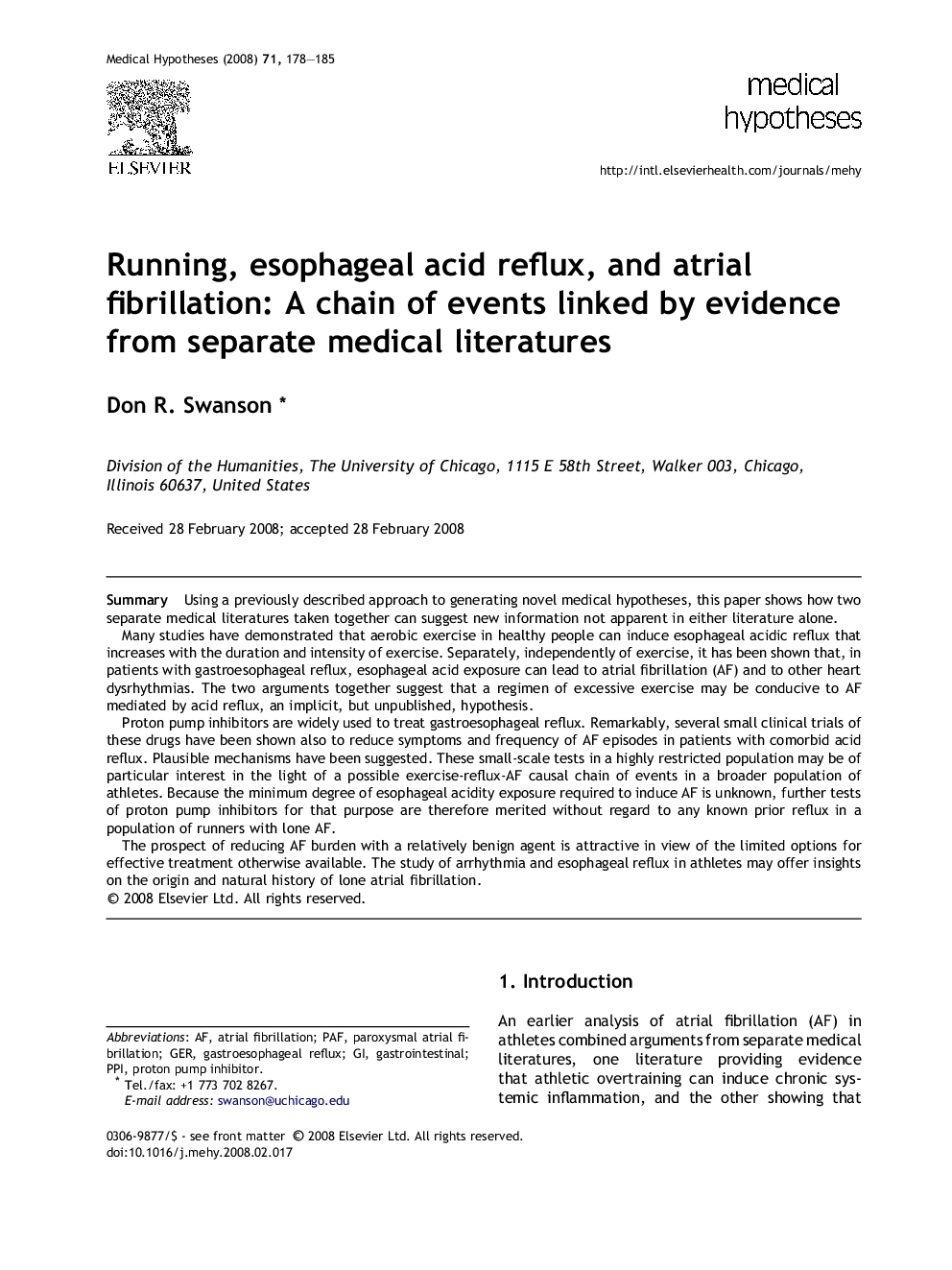| Article ID | Journal | Published Year | Pages | File Type |
|---|---|---|---|---|
| 2491354 | Medical Hypotheses | 2008 | 8 Pages |
SummaryUsing a previously described approach to generating novel medical hypotheses, this paper shows how two separate medical literatures taken together can suggest new information not apparent in either literature alone.Many studies have demonstrated that aerobic exercise in healthy people can induce esophageal acidic reflux that increases with the duration and intensity of exercise. Separately, independently of exercise, it has been shown that, in patients with gastroesophageal reflux, esophageal acid exposure can lead to atrial fibrillation (AF) and to other heart dysrhythmias. The two arguments together suggest that a regimen of excessive exercise may be conducive to AF mediated by acid reflux, an implicit, but unpublished, hypothesis.Proton pump inhibitors are widely used to treat gastroesophageal reflux. Remarkably, several small clinical trials of these drugs have been shown also to reduce symptoms and frequency of AF episodes in patients with comorbid acid reflux. Plausible mechanisms have been suggested. These small-scale tests in a highly restricted population may be of particular interest in the light of a possible exercise-reflux-AF causal chain of events in a broader population of athletes. Because the minimum degree of esophageal acidity exposure required to induce AF is unknown, further tests of proton pump inhibitors for that purpose are therefore merited without regard to any known prior reflux in a population of runners with lone AF.The prospect of reducing AF burden with a relatively benign agent is attractive in view of the limited options for effective treatment otherwise available. The study of arrhythmia and esophageal reflux in athletes may offer insights on the origin and natural history of lone atrial fibrillation.
